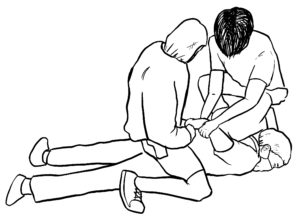Toxic chemical industry

Chemical and chemical product manufacturing are key elements in agricultural production and almost all manufacturing subsectors. It is considered a backbone of national industrialization. Production utilizes high technology and has a relatively high added value.
In the Philippines, it is the third largest manufacturing subsector—after food and electronics. In 2021, its value-added reached ₱390 billion, making up 11%-12% of the overall value-added of the manufacturing sector. Its gross value (average of ₱7 billion annually) comprises 6.7% of the gross domestic product.
Even so, the country’s chemical industry is small and uneven. There are key products, such as fertilizers and medicines, which are insufficiently produced and do not meet local demand. The Philippines imports 95% of its fertilizer needs. Local production is also reliant on imported petrochemicals and other inputs and elements.
On the other hand, it is said that the country is capable of producing enough, and even beyond the demand for consumer products like plastic spoon and fork, wrappers, containers and styrofoam. The use of these single-use plastics is one of the world’s greatest polluters, has destroyed ecosystems and killed marine animals.
In the past, the Philippines is a major exporter of glycerin—an oleochemical extracted from coconut— used in soaps and other hygiene products. Starting 2010, global demand has relatively slowed down after palm oil emerged as a stronger substitute. Cheaper and more abundant palm oil from Indonesia and Malaysia slowly overtook Philippine exports.
In 2019, there were 1,400 companies registered in the chemical industry and 46,000 chemicals processed in the local inventory. Almost half (43%) of the companies manufactured plastics, which comprises 26% of the country’s chemical production. It includes plastic houseware, pipes and plastics for industrial use. The rest include basic chemicals like alcohol, industrial gas and resin (22%); and rubber products such as tires and slippers (7%). The majority (45%) are categorized as “other chemical products” such as perfumes, medicines, paint, soap and shampoo, ink, cosmetics, fertilizers, pesticides, lubricants and adhesives.
The industry is dominated by multinational companies like Dow Chemicals Pacific Ltd (US), Du Pont Far East Incorporated (France) and Bayer (Germany) and big agrochemical companies such as Monsanto (bought by Bayer) and Syngenta (China). Locally, Petron and JG Summit, Chemrez Technologies, Mabuhay Vinyl Corporation, Pacific Boysen Paint and RiChemical Corporation are listed as having large operations. Their major factories are located in Metro Manila, Bataan, Batangas, Cebu, Leyte, Negros and Iligan.
Toxic workplace
The industry directly employs 93,000, down from 147,000 in 2013. As with others in the manufacturing sector, contractualization and wage repression is prevalent in this subsector. In addition, its factories are notorious for backward production and grave abuses in occupational and health standards which have caused workers’ injuries and deaths.
One of the greatest worker’s tragedies is the 2015 fire in Kentex Manufacturing Incorporated, a factory which produced rubber slippers. Seventy two workers died in the fire, many of whom were women, while hundreds were never found. Aside from the improper storage of flammable chemicals, workers were made to work in prison-like conditions, wherein they were unable to escape when the fire spread. Most of them were contractuals who did not have benefits. In 2020, a court acquitted the company’s officials and the Bureau of Fire Protection of any criminal liability, even though the factory was awarded a permit to operate when it did not meet safety standards.
Another unsafe workplace is that of Pepmaco, a company which produces soaps and shampoos. Workers here complain that they are made to handle pungent and corrosive chemicals without protection. The company uses Zeolite to make soap, a chemical known to cause cancer. These conditions are on top of issues like contractualization, extremely low wages and union-busting.


